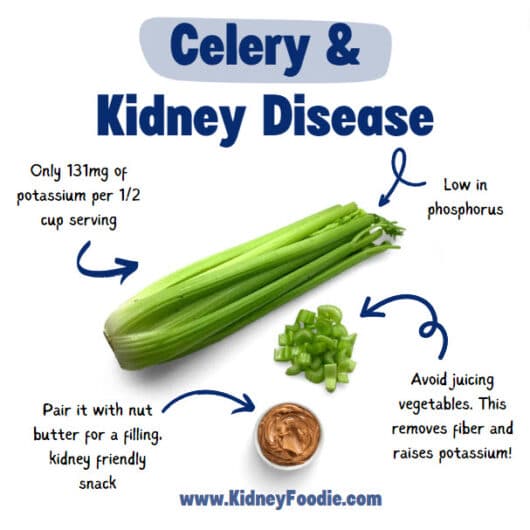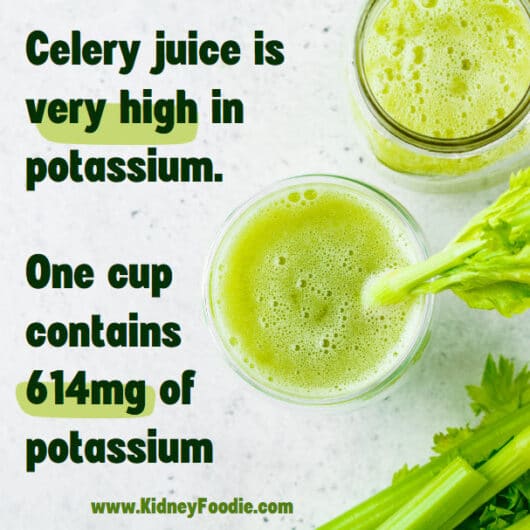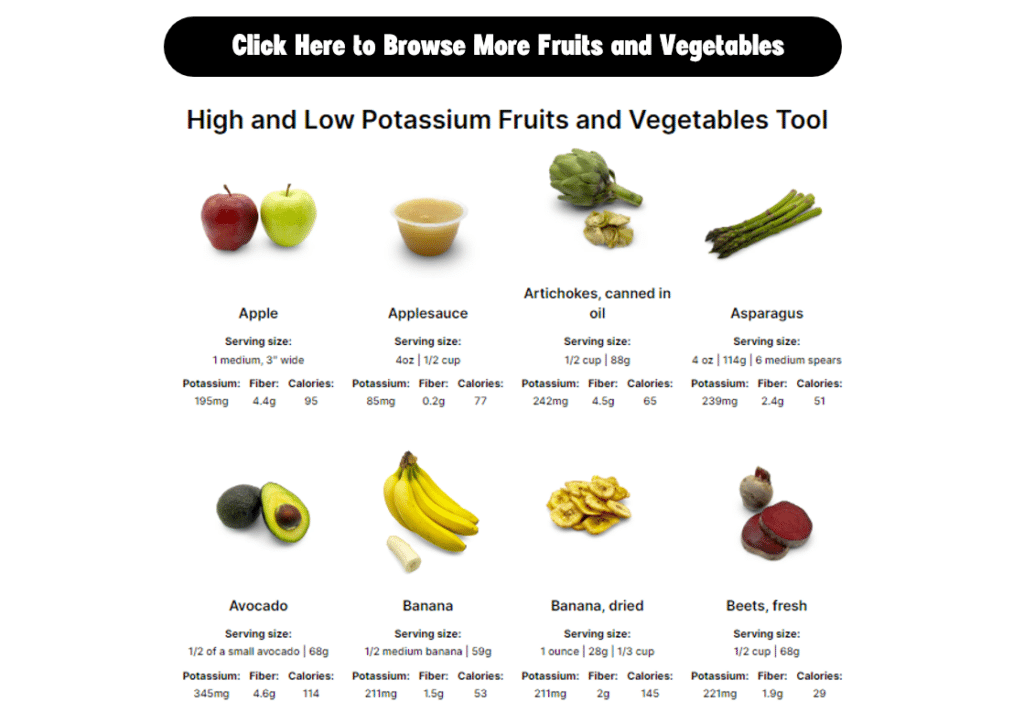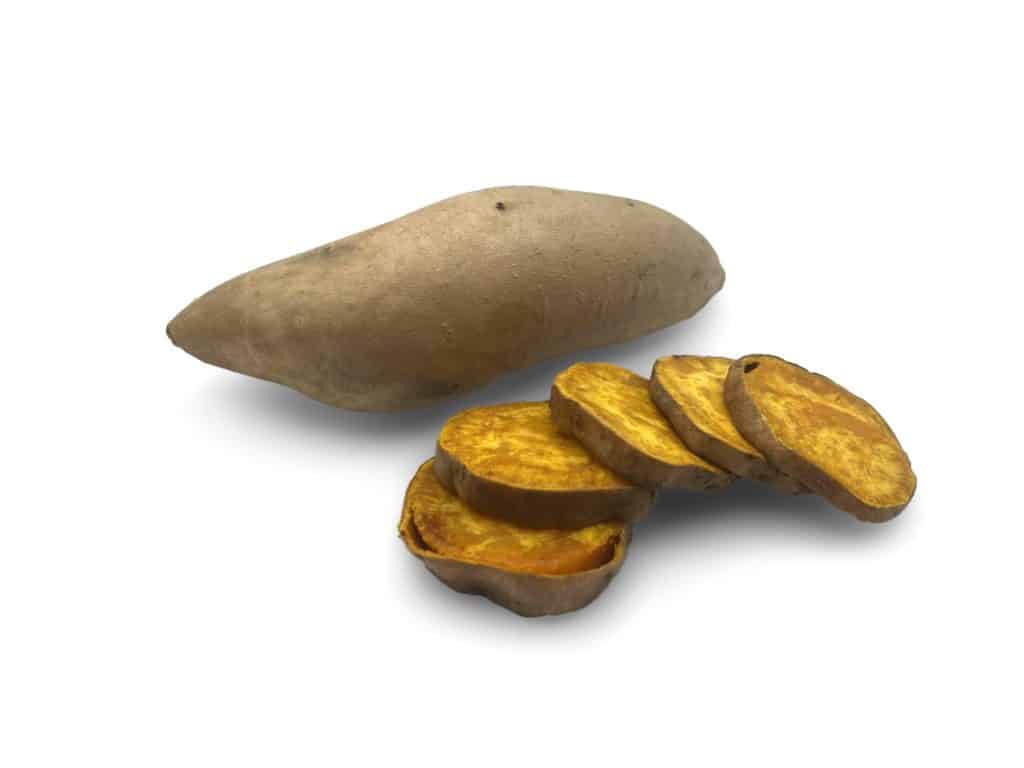Table of Contents
Is celery good for kidneys?
Yes, celery contains antioxidants, fiber, and vitamins that are beneficial to people with kidney disease.
This post may contain affiliate links through which we may earn a small commission to help keep this website free.

Is celery juice good for kidneys?
There is no evidence that celery juice can improve kidney function in humans.
Celery juice is often promoted as a potential kidney or liver cleanse, but there is no factual basis for this.
A well balanced, properly designed diet can help reduce the stress and workload on your kidneys and improve your overall feelings of health and well-being. However, there is no single food that can accomplish this.
Large doses of any food can be harmful to the body, and a diet that focuses on a single food will be deficient in many vital nutrients.

Is celery high in potassium?
One half cup of celery contains 131mg of potassium making it a low potassium vegetable.
However, celery juice is very high in potassium. One cup of celery juice contains 614mg of potassium. We do not recommend juicing fruits or vegetables. We recommend eating vegetables in their original form, either cooked or uncooked, to maximize the health benefits associated with consuming fruits and vegetables.
Most kidney professionals consider a vegetable to be high potassium if it contains more than 200mg of potassium per serving.
If you have kidney disease, you should not restrict your intake of fruits and vegetables because of potassium content unless instructed by your kidney dietitian or healthcare provider. Many people who have kidney disease do not need to restrict their intake of potassium. There are many other factors that could cause you to have high potassium levels that are not related to the food you eat.
For example, constipation can lead to higher potassium levels in people with chronic kidney disease. Getting in adequate fiber can help you manage your potassium better because it helps relieve constipation, so people with kidney disease are able to remove more potassium from their body with their bowel movements.
Fruits and vegetables, including celery, contain fiber which will help your body manage potassium better in the long run.
You can also learn more about managing potassium and kidney disease through our courses or by signing up for our complimentary newsletter.

Is celery high in phosphorus?
No. One half cup of celery contains about 12mg of phosphorus. The phosphorus found in celery is natural and poorly absorbed by the body, so it is considered a low phosphorus food.
For more information about phosphorus and kidney disease, check out our youtube video.
What are the benefits of celery?
- Celery is contains vitamins, polyphenols, and antioxidants. Antioxidants consumed through fruits and vegetables are considered to have protective effects against many chronic diseases.
- Celery is also a good source of fiber. Fiber is important for gut health as well as helping the body maintain potassium levels.
- Research shows that a low intake of fruits and vegetables is associated with an increased risk of developing kidney failure in people with kidney disease (as well as those who don’t have kidney disease ). This suggests that getting adequate fruits and vegetables is important for people with kidney disease.
Healthy ways to eat celery
- Celery can be eaten raw or dipped in hummus or a kidney friendly salad dressing
- Celery can be sliced and added to salads for extra crunch
- Spreading peanut or almond butter on celery and adding raisins or dried cranberries is a fun and healthy snack for kids and adults
- Celery can be sauteed with onions and carrots to make a flavorful mirepoix that can be added to soups or grain dishes.
Is celery high in oxalates?
No, celery is considered low in oxalates. (Source)
Oxalates are naturally occurring compounds found in many foods. When consumed, oxalates can bind with calcium in the body to form crystals, which can contribute to the formation of kidney stones in some individuals.
Kidney stones are hard deposits that form in the kidneys when there are high levels of certain substances, such as calcium, oxalate, and uric acid, in the urine. The most common type of kidney stone is calcium oxalate stones, which are formed when calcium and oxalate combine in the urine.
While oxalates are present in many foods, not everyone who consumes oxalates will develop kidney stones. Factors such as individual susceptibility, overall diet, and lifestyle choices play a role in kidney stone formation.
The highest oxalate fruits and vegetables are spinach, rhubarb, and swiss chard. However, it’s important to note that the mere presence of oxalates in food does not guarantee kidney stone formation. If you are not prone to developing kidney stones, then there is no reason to avoid foods that are high in oxalate.
High and Low Potassium Fruit and Vegetable Tool
Looking for more information on other kidney friendly fruits and vegetables? Check our our Fruit and Vegetable Potassium Tool.



